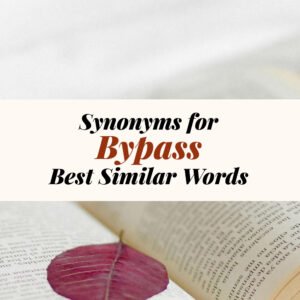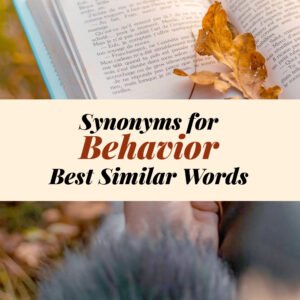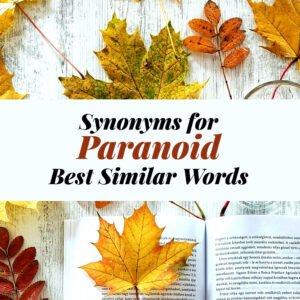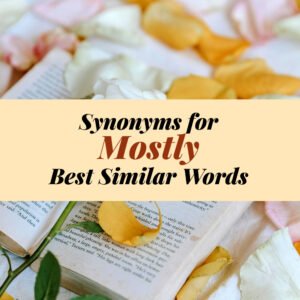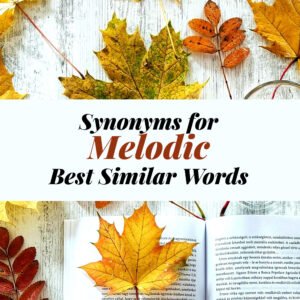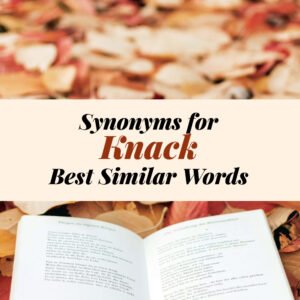Are you looking for different ways to describe someone or something that is quiet? There are many words you can use instead, like silent, calm, or peaceful. These words can make your writing more interesting and expressive. In this article, we will explore 21 synonyms of quiet with examples and tips on how to use them.
| Synonyms | Example |
|---|---|
| Silent | The library was completely silent as everyone studied. |
| Calm | She felt calm after listening to soft music. |
| Peaceful | The garden was peaceful in the early morning. |
| Hushed | The audience spoke in hushed tones during the show. |
| Tranquil | We enjoyed the tranquil lake at sunset. |
| Serene | He looked serene while meditating by the river. |
| Muted | The colors in the room were muted and soft. |
| Soundless | The forest was soundless except for the birds. |
| Soft-spoken | She is very soft-spoken and polite to everyone. |
| Still | The pond was perfectly still and clear. |
| Reticent | He was reticent about sharing his feelings. |
| Peaceable | The village was peaceable and free from fights. |
| Gentle | The nurse had a gentle way with patients. |
| Low-key | The party was low-key and quiet. |
| Unobtrusive | Her presence was unobtrusive during the meeting. |
| Muffled | His voice was muffled by the thick walls. |
| Whispering | The children were whispering so no one could hear. |
| Inaudible | The speaker’s voice became almost inaudible. |
| Retiring | He has a retiring personality and avoids crowds. |
| Soft | The pillow was soft and quiet when she rested. |
| Reserved | He is reserved and does not speak much. |
21 Different Ways to Say QUIET: Another Word for QUIET
Silent
Silent means having no sound at all. It is a strong word for complete quietness and is often used to describe a place, a moment, or a person who is not speaking. Silent can make a situation feel serious, respectful, or calm. For example, a library, a study room, or a forest at night can all be silent. Using silent helps the reader or listener understand that there is no noise at all. It is also useful when describing people who are thinking or not talking.
- The room became silent when the teacher entered.
- She stayed silent during the argument.
- The forest was silent at night.
- He gave a silent nod to agree.
- The baby slept in silent peace.
- Everyone waited in silent anticipation.
Calm
Calm means quiet and peaceful. It can describe a person, place, or moment. When someone is calm, they are not upset, nervous, or making noise. Calm is often used to show a peaceful mood or environment. You can feel calm while sitting by a lake, walking in a garden, or listening to soft music. Calm also describes the way someone talks or reacts. A calm voice or calm behavior can make others feel comfortable and safe.
- She felt calm before her test.
- The sea was calm today.
- He spoke in a calm voice.
- The baby stayed calm while waiting.
- I felt calm walking in the park.
- The teacher’s calm presence helped the students.
Peaceful
Peaceful means quiet, safe, and free from trouble. It is often used to describe places, times, or people. A peaceful place is relaxing and makes people feel happy and comfortable. Peaceful can also describe actions or moments that are gentle and without problems. You can say a peaceful morning, a peaceful garden, or a peaceful heart. Using peaceful adds a sense of comfort and happiness to your words. It shows that nothing is loud, angry, or stressful.
- The village looked peaceful in the morning.
- She enjoys a peaceful cup of tea.
- The garden is very peaceful.
- He lived a peaceful life in the countryside.
- The lake is always peaceful at sunrise.
- They had a peaceful walk in the park.
Hushed
Hushed means quiet and soft. It is often used when people speak in very low voices, or when a place becomes very quiet. Hushed shows respect or care in a situation. For example, people often speak in hushed tones in a library, church, or theater. Hushed can also describe a gentle atmosphere. It shows that the quiet is intentional and careful, not just empty silence. Using hushed can make your writing feel more detailed and polite.
- The children spoke in hushed tones.
- The theater fell hushed before the show.
- His hushed voice showed fear.
- The library remained hushed all day.
- The audience gave a hushed applause.
- She moved in a hushed manner.
Tranquil
Tranquil means calm, peaceful, and quiet. It is often used to describe nature, water, or surroundings. A tranquil place makes people feel relaxed and happy. Tranquil can also describe moments when everything feels smooth and soft. Using tranquil helps people imagine a beautiful and quiet scene. You can use it for lakes, gardens, mornings, or even moods. It is stronger than just calm because it suggests beauty and total peace.
- The tranquil lake reflected the mountains.
- She enjoyed the tranquil morning.
- The garden looked tranquil under the sun.
- He spent a tranquil day reading.
- The forest was tranquil and quiet.
- A tranquil breeze blew through the room.
Serene
Serene describes someone or something that is quiet, peaceful, and happy. It is often used for people who are calm and not worried. Serene can also describe a scene or environment that looks beautiful and calm. Using serene adds a sense of happiness and comfort. It shows that there is no noise, stress, or problem in the scene or moment. Serene is often used for meditation, nature, or people who feel content.
- She looked serene while meditating.
- The sky was serene at sunset.
- His face remained serene despite the noise.
- The park was serene in the morning.
- A serene smile appeared on her face.
- They enjoyed the serene river view.
Muted
Muted means quiet, soft, or not strong. It can describe sound, color, or mood. Muted shows that something is gentle and not loud or bright. Using muted can describe voices, music, walls, or emotions that are soft. Muted is helpful for showing a gentle or calm scene. It makes the situation feel comfortable and quiet without being too empty or serious.
- The music was muted during the movie.
- The colors in the room were muted.
- His laughter was muted by the wall.
- The discussion became muted as people listened.
- She spoke in a muted tone.
- The lights were muted and soft.
Soundless
Soundless means completely without sound. It is very strong and can describe moments or places with total quiet. Soundless can describe night, nature, or an empty space. Using soundless helps readers feel complete silence. It can also describe emotions or moments that are very calm. Soundless is useful for dramatic or deep descriptions where silence is important.
- The forest was soundless except for a few birds.
- The night was completely soundless.
- He walked through the soundless hall.
- The room became soundless when everyone left.
- The snow fell soundless on the ground.
- The mountain peak was soundless and calm.
Soft-spoken
Soft-spoken means someone speaks gently and quietly. This word is used to describe people who do not raise their voices and are polite. Being soft-spoken shows kindness and calmness. Soft-spoken people are often liked because they are not harsh or loud. You can describe teachers, friends, or leaders as soft-spoken. Using this word makes your description friendly and respectful.
- She is soft-spoken and polite to everyone.
- He spoke soft-spoken words to calm the child.
- The manager was soft-spoken during the meeting.
- Her soft-spoken tone made everyone feel relaxed.
- The doctor was soft-spoken with patients.
- A soft-spoken voice can show confidence without shouting.
Still
Still means without movement or sound. It can describe water, air, or a place. Still also describes moments when everything is calm. Using still gives a feeling of quietness and rest. Still is often used for nature scenes like ponds, lakes, or mornings. It can also describe people sitting quietly.
- The pond was perfectly still and clear.
- The air was still and calm.
- He sat still while reading.
- The night was still and quiet.
- The forest remained still during winter.
- The baby stayed still in her crib.
Reticent
Reticent describes a person who is quiet and does not share thoughts easily. It can show shyness, politeness, or carefulness. Reticent people are usually thoughtful and private. Using reticent can describe someone in social or professional settings. It gives the impression that they are calm and reserved, not loud or disruptive.
- He was reticent about sharing his feelings.
- She remained reticent in the meeting.
- The boy was reticent with strangers.
- His reticent nature kept him out of trouble.
- The author was reticent about personal life.
- She stayed reticent during the conversation.
Peaceable
Peaceable means quiet, calm, and not aggressive. It is used for people, communities, or situations that avoid conflict. Peaceable shows harmony and safety. Using peaceable can describe towns, families, or groups that live together quietly.
- The village was peaceable and free from fights.
- He has a peaceable personality.
- The peaceable meeting went smoothly.
- Animals in the park were surprisingly peaceable.
- The neighbors are peaceable and friendly.
- They lived in a peaceable home.
Gentle
Gentle means soft, kind, and calm. It is used for people, actions, or movements. Gentle shows care and quietness. Using gentle helps describe interactions and nature. Gentle can also describe a mood or atmosphere that is soft and calm.
- The nurse had a gentle way with patients.
- She gave a gentle smile.
- A gentle breeze blew through the room.
- The teacher’s gentle voice calmed the children.
- He handled the cat in a gentle manner.
- The stream flowed in a gentle rhythm.
Low-key
Low-key means quiet, calm, and not attracting attention. It is often used for parties, events, or people. Low-key shows that something is relaxed and informal. Using low-key makes writing casual and modern.
- The party was low-key and quiet.
- She prefers a low-key lifestyle.
- Their wedding was low-key and private.
- The event was low-key but fun.
- He kept his success low-key.
- They celebrated low-key at home.
Unobtrusive
Unobtrusive means quiet, not noticeable, or not attracting attention. It can describe people, actions, or things. Unobtrusive shows subtlety and calmness. Using unobtrusive helps describe behavior or objects that blend into the surroundings.
- Her presence was unobtrusive during the meeting.
- The decorations were unobtrusive but beautiful.
- He tried to be unobtrusive in the crowd.
- The waiter was unobtrusive but attentive.
- Their house is unobtrusive on the street.
- The camera was unobtrusive during filming.
Muffled
Muffled means quiet because something blocks the sound. It can describe voices, noises, or music. Muffled shows that the sound is soft and not clear. Using muffled helps create realistic and sensory descriptions.
- His voice was muffled by the thick walls.
- We heard a muffled cry from the next room.
- The music sounded muffled through the door.
- Her steps were muffled on the carpet.
- A muffled drumbeat came from the distance.
- He spoke in a muffled tone.
Whispering
Whispering means speaking very quietly, usually softly to someone nearby. It shows secrecy, gentleness, or calmness. Using whispering helps create intimate or quiet scenes.
- The children were whispering so no one could hear.
- She kept whispering in his ear.
- They exchanged whispering words in the library.
- Whispering voices floated through the hall.
- He answered in a whispering tone.
- The wind seemed whispering through the trees.
Inaudible
Inaudible means impossible to hear because it is too quiet. It can describe voices, sounds, or signals. Using inaudible helps create contrast between sound and silence.
- The speaker’s voice became almost inaudible.
- The whisper was inaudible in the crowd.
- Her sigh was inaudible to everyone.
- The radio was so low it was inaudible.
- The footsteps were inaudible on the carpet.
- He muttered an inaudible comment.
Retiring
Retiring describes someone who is quiet, shy, and prefers to stay away from attention. Retiring people avoid noise and crowds. Using retiring adds personality to a character in writing.
- He has a retiring personality and avoids crowds.
- She is naturally retiring at parties.
- The boy was retiring and thoughtful.
- His retiring manner made him friendly.
- A retiring student often stays in the library.
- The author is retiring but talented.
Soft
Soft means quiet, gentle, and calm. It is used for voices, movements, or textures. Soft creates a sense of comfort and quietness. Using soft makes descriptions warm and peaceful.
- The pillow was soft and quiet when she rested.
- He spoke in a soft voice.
- The snow fell softly on the ground.
- She touched the fabric softly.
- The music played softly in the background.
- A soft light filled the room.
Reserved
Reserved describes someone who is quiet and does not show feelings openly. Reserved people are thoughtful and private. Using reserved adds depth to personality descriptions.
- He is reserved and does not speak much.
- She remained reserved during the discussion.
- The young man is reserved but intelligent.
- Her reserved nature makes her careful with words.
- The manager is reserved but fair.
- He stayed reserved in public.
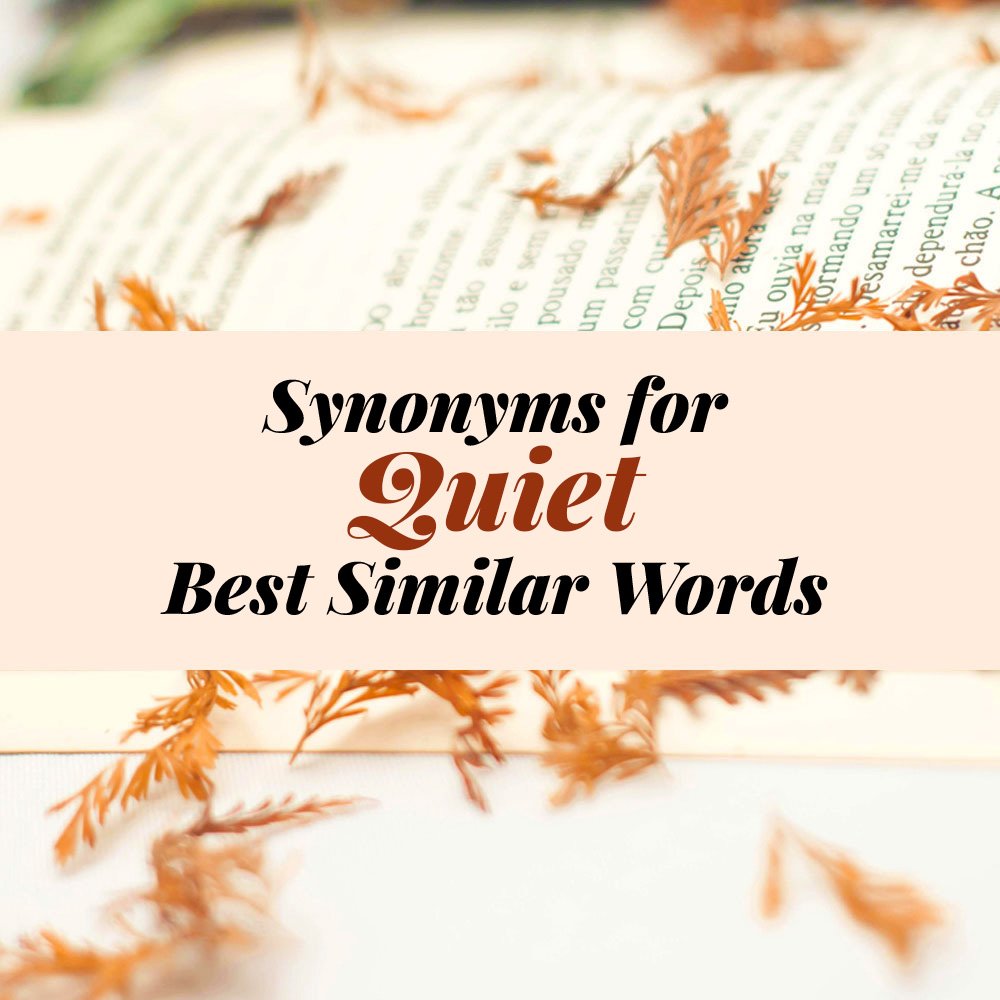
Finding the right word for quiet can greatly improve your writing and communication. From silent and peaceful to soft-spoken and reserved, each synonym adds a unique shade of meaning, helping you describe people, places, and situations more vividly. Using these 21 alternatives allows you to avoid repetition while conveying calmness, gentleness, or subtlety in your writing. Whether you’re creating a serene scene in a story, describing a soft-spoken person, or emphasizing total silence, these synonyms will enrich your vocabulary and make your expressions more precise and engaging.

